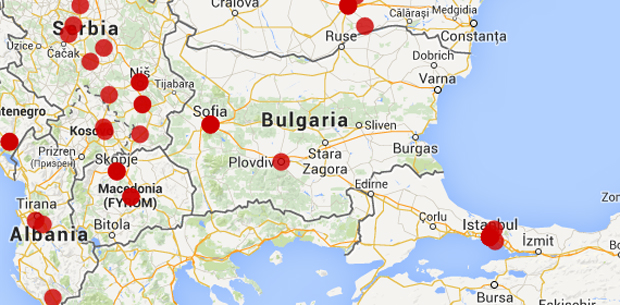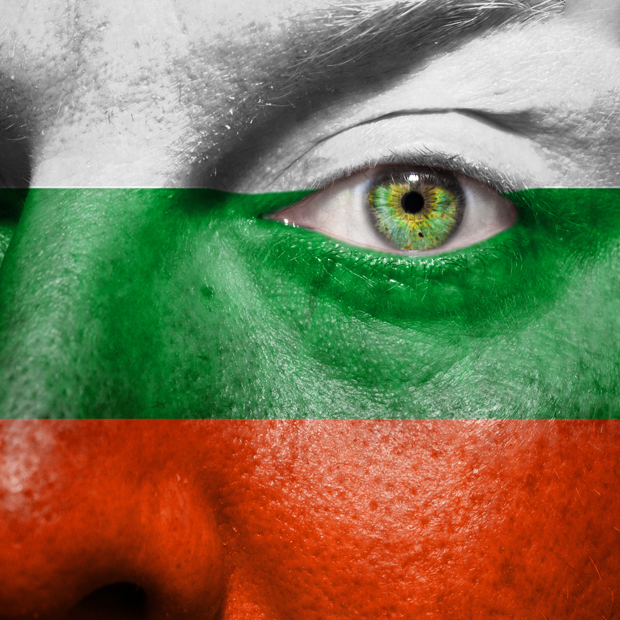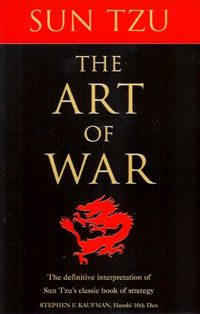13 Aug 2014 | Bulgaria, Mapping Media Freedom, News, Politics and Society

Index on Censorship and Osservatorio Balcani e Caucaso are joining forces to map the state of media freedom in Europe. With your participation, we are mapping the violations, threats and limitations that European media professionals, bloggers and citizen journalists face everyday. We are also collecting feedback on what would support journalists in such situations. Help protect media freedom and democracy by contributing to this crowd-sourcing effort.
Bulgarian journalists covering the financial beat can breathe freely as the most controversial parts of the so-called “bank censorship” amendment to the criminal code have been removed by the legal committee of the national assembly.
In July, parliament adopted the amendment on first reading. The text of the draft outlined sentences of two to five years in prison for circulating “false or misleading information” about banks that could “cause panic”.
The amendment was suggested indirectly by the Bulgarian National Bank (BNB) after a series of bank runs involving Bulgaria’s fourth largest credit institution, the Corporate Commercial Bank (CCB) and later an unrelated run involving financial institution the First Investment Bank (FIB).
It is still unclear who was behind these incidents. The run against CCB was likely caused by disagreements between media tycoon Delyan Peevski, one of the CCB’s large depositors and his old friend, Tsvetan Vasilev, the owner of CCB. Peevski started to remove funds, sparking a bank run which undermined the bank’s liquidity.
In the FIB case, three people have been arrested. They are suspected of spreading rumours about the imminent bankruptcy of FIB via emails and short text messages to the bank’s clients. This stirred mass panic, as people rushed to withdraw their money from the bank: in a few hours, BGN 800 million (£327 million) were withdrawn.
“Society is very sensitive especially to issues that affect the financial and banking stability as the memory of the banking crisis in 1996-1997 is still fresh,” said Petya Stoyanova, a financial and banking journalist from Bulgaria. During that crisis, 14 Bulgarian banks collapsed.
The memory of the mid-1990s financial crisis is the main reason behind the low public confidence in the Bulgarian banking system, which can easily be moved to panic. As a response, BNB proposed an amendment to the criminal code on 1 July stating that those who “disseminate misleading or untrue information on a bank or a financial institution that could create panic among the population, be punished with five to 10 years of imprisonment”.
BNB also proposed a fine ranging between BGN 5,000 and BGN 10,000 (£4,061) to be imposed in such cases. People causing significant damage or those having received significant illegal revenues through the aforementioned activities would be punished the same way.
According to Stoyanova, the proposals have been criticised by politicians and lawyers because of its vague language which, in a broad interpretation, could lead to a conviction for dissemination of any information related to the banking sector, even if it is not false or misleading.
After the first reading of the amendment in parliament, members of the legal committee applied a number of corrections. The revised amendment removes the danger of censorship by tightening up the language, which now refers to disseminating “false” banking information. While the potential fines for those spreading such information were increased, the possibility of prison has been eliminated.
The banking scandals hinted at the dimensions of backstage political machinations in Bulgaria. Stoyanova believes responsibility for malicious behaviour should have a place in future changes to the criminal code. Future lawmakers, she said, should not be allowed to quickly alter laws in violation of rules and best legislative practices, without public discussion.
The second reading of the amendment will be left to the next national assembly, as parliamentary elections will be held on 5 October.
More reports from Bulgaria via mediafreedom.ushahidi.com
Election law amendment could limit press freedom
Attacker sprays substance in Bulgarian sports journalist’s face
Bulgarian journalist beaten by football fans
Newspaper reporters attacked, threatened in Bulgaria’s city of Plovdiv
Arson Attack Against Bulgarian Journalist Genka Shikerova
This article was posted on 13 August 2014 at indexoncensorship.org
15 Aug 2013 | Bulgaria, Digital Freedom, News

(Photo illustration: Shutterstock)
While the revelations around mass surveillance by the US and some European governments were reported by Bulgaria’s media, the country’s focus in recent months has been the fallout from the country’s elections.
After a polarising election in May, tens of thousands went out to protest against the new Bulgarian government and staged daily rallies for over nearly two months. As a result, the significance of the NSA revelations was not enough to elevate it above domestic political skirmishes.
The Snowden affair had all the ingredients for the media sensation other European countries experienced: a huge cover-up affirming most citizens’ suspicions about governments spying on them, a global chase through Hong Kong and Moscow (with possible sequels in Vienna, Havana and Caracas) and – most importantly – a local context.
Bulgarians, long sensitive about government surveillance after nearly five decades of totalitarianism, had an eavesdropping scandal of their own as recently as in April when a former interior minister was accused of wiretapping a host of political figures, businessmen and journalists. According to one opinion poll conducted in April, 73% of Bulgarians believed that their government had been practicing illegal wiretapping.
Thus, the interest for the Snowden affair among the Bulgarian public was a given. And the media promptly reacted, assigning it the expected prominence among their foreign affairs coverage, if not the front pages which the scandal got in Germany, the UK or France.
“Revelations about the NSA activities were covered in Bulgaria, but did not become a central topic for the media as they of coincided with the anti-government protests,” said Nelly Ognyanova, a leading Bulgarian media law expert and media analyst. ‘However, Bulgarian media paid special attention to the aspect of the EU – US relations in the light of the scandal,” she said.
Media in Bulgaria, which joined the European Union in 2007, covered the reaction in Brussels and in major European capitals and especially in Berlin where the topic was becoming a battleground in light of the German general elections in the fall. Bulgarian media also focused on the fact that the NSA scandal was threatening to derail the negotiations for a major free trade agreement between the EU and the US.
End mass surveillance! Sign the petition
EU leaders: Stop mass surveillance | Лидеры Евросоюза: прекратите массовую слежку! | Líderes europeos: Paren la vigilancia masiva | Dirigeants européens: Arrêtez la surveillance de masse! | Europas Staats-und Regierungschefs: Stoppen Sie die Massenüberwachung! | Liderzy Unii Europejskiej: zaprzestańcie masowej inwigilacji! | Лидери на ЕС: Cпрете масовото наблюдение
Since there are only a handful of Bulgarian foreign correspondents, local media mostly quoted international titles like The New York Times, the BBC, The Guardian and Der Spiegel. The Snowden revelations also did not have (obvious) Bulgarian links – when information emerged that the US was secretly wiretapping foreign embassies on American soil, the weekly “Capital” tried to contact the Bulgarian mission in Washington but was referred to the foreign ministry in Sofia which, in turn, had no comment on the case.
As for Snowden himself, Bulgarian media painted a mostly neutral portrait of the whistleblower.
“Bulgarian media were rather sticking to the facts without taking a judgmental position on Snowden, but without making him look like a hero as well,” said Ognyanova. “In Bulgaria there was no discussion like the one that took place in other countries about whether Snowden is a hero. Against the backdrop of the very important information that he revealed, however, the media treated him with a degree of sympathy for his civil courage.”
Given the anti-government protests and the heightened domestic political situation, the political and social media reaction to the Snowden affair appeared mostly muted. The Bulgarian social networks – an otherwise vibrant community of some 2.5 million people – was mostly preoccupied with the anti-government protests which, in fact, originated mostly on Facebook walls and Twitter profiles and later transferred to the streets of Sofia and other major cities.
One small political party, the Greens, issued a statement in July calling the revelations “a serious attack on civil rights and the foundations of democracy” and asking the Bulgarian government to offer asylum to Snowden.
“The Greens party expresses our gratitude to Edward Snowden for his courage and for his service to EU citizens,” the statement said.
According to Ognyanova, the media law expert, it is important to draw conclusions from the NSA affair.
“Either in the free trade pact or in another agreement, there must be a provision to protect the personal data and privacy of European citizens,” she said. “It is high time for the EU to have their own clouds and to not provide our information to companies under the jurisdiction of countries outside the European Union,” she said. “I expect this from my government and from the EU, being its citizen.”
This article was originally published on 15 Aug, 2013 at indexoncensorship.org. Index on Censorship: The voice of free expression.
17 May 2013 | Europe and Central Asia, News
An election is always a good litmus test for a country’s media freedom — particularly in Bulgaria. It consistently ranks last amongst European Union members for media freedom, and the US Department of State called its “gravely damaged media pluralism” one of its most pressing human rights problems, Georgi Kantchev reports.

In the run-up to the 12 May parliamentary election, former ruling party GERB received the most mentions in Bulgaria’s media, ahead of the Bulgarian Socialist Party (BSP), and the Turkish minority movement DPS — mirroring the election results.
Media coverage, however, does not accurately capture the gap between parties. GERB was mentioned 3,642 times in election coverage — 80 per cent more than BSP. In the polls, the difference between the two parties was less than four per cent.
Bulgaria’s media grants over-exposure to those in power, and the industry seems to quickly adapt to a new political situation. While the New Bulgarian Media Group (NBMG) editorial stance was against the GERB in the 2009 elections, it changed its tune almost overnight after the party’s victory.
Given the close ties between the media and political parties in the country, distorted election coverage is not very surprising. For instance, a high-ranking DPS member owns the NBMG, which owns the Telegraph, the highest circulated newspaper in the country.
The tangles between politics and the Bulgarian media has drawn the attention of the Organisation for Security and Cooperation in Europe (OSCE). In a report released ahead of the election, the body expressed concerns over the “growing concentration of media ownership in the hands of a restricted circle of business people.” According to the OSCE, this “raised concerns about the independence of media from undue economic and political pressure.”
“Most media find themselves in a passive position and practically shun their most important function — to build an informed public opinion, and through that to support the political choice of the people”, says Orlin Spassov, professor of journalism at the University of Sofia. “The result of this campaign was a deficit of informed choice.”
Bulgaria has measures put in place to distinguish editorial content from political advertisements for broadcast media, but not for the press. The OSCE pointed out that “paid media coverage is often not labelled as such, thus potentially misleading the audience about the nature of the reporting.”
Bulgaria’s murky relationship with the press also creates trouble for journalists, who sometimes feel pressure for their reporting. In April Boris Mitov, a journalist for news site Mediapool.bg was summoned for questioning by prosecutors after writing an article accusing a Sofia deputy city prosecutor of illegal wiretapping. The prosecutors placed pressure on Mitov to reveal his sources, and after he refused to do so, they reportedly told him that he could face up to five years in prison for disclosing state secrets.
More troubling is the culture of self-censorship arising from pressure placed on journalists from business groups. Most common is economic pressure — which trickles down from media outlet owners to editors and reporters. The NBMG group, for instance, is largely financed by the Corporate Commercial Bank (CCB). The CCB has also held a large percentage of state-owned enterprises in the transport, energy, and defence sector — which means that NBMG is practically financed with public funds. This helps explain why the group is often cosying up to those in power.
While infrequent, sometimes journalists face direct threats from businesses. After writing a series of articles critical of a local business group last year, investigative journalist Spas Spassov received Sun Tzu’s book The Art of War in the post. Included was a note quoting a line from the book: “You should avoid those you can’t either defeat or befriend.”
The most recent election results, however, have left an unclear picture of who is in power: since no party has gain
ed a majority in Parliament. Coalition building was undermined by a deeply polarising election — which means that the media will have a difficult time knowing who to pledge allegiance to.
17 Oct 2011 | Index Index, minipost
The car of a popular Bulgarian journalist was blown up on Thursday, after a makeshift bomb was attached to the vehicle. Sasho Dikov, programme director of the Channel 3 TV station, was not injured by the blast outside his home in a residential area of Sofia. The journalist, who has been a fierce critic of the center-right government said the attack was to intimidate him, and “anyone who speaks the truth.” Dikov said the attack would not stop him from discussing the alleged failure by Prime Minister Boiko Borisov’s government’s to cope with corruption and organised crime.



